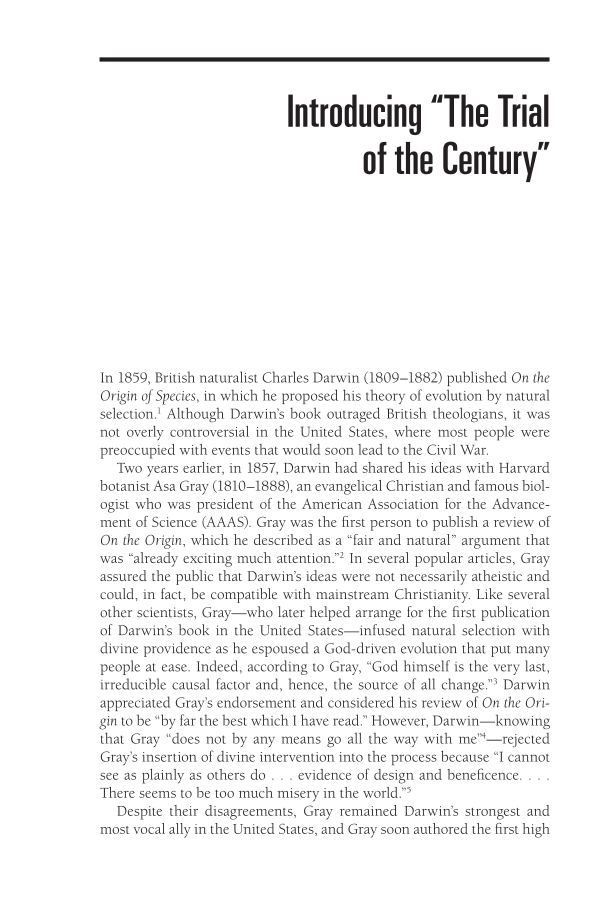Introducing “The Trial of the Century” In 1859, British naturalist Charles Darwin (1809–1882) published On the Origin of Species, in which he proposed his theory of evolution by natural selection.1 Although Darwin’s book outraged British theologians, it was not overly controversial in the United States, where most people were preoccupied with events that would soon lead to the Civil War. Two years earlier, in 1857, Darwin had shared his ideas with Harvard botanist Asa Gray (1810–1888), an evangelical Christian and famous biol- ogist who was president of the American Association for the Advance- ment of Science (AAAS). Gray was the first person to publish a review of On the Origin, which he described as a “fair and natural” argument that was “already exciting much attention.”2 In several popular articles, Gray assured the public that Darwin’s ideas were not necessarily atheistic and could, in fact, be compatible with mainstream Christianity. Like several other scientists, Gray—who later helped arrange for the first publication of Darwin’s book in the United States—infused natural selection with divine providence as he espoused a God-driven evolution that put many people at ease. Indeed, according to Gray, “God himself is the very last, irreducible causal factor and, hence, the source of all change.”3 Darwin appreciated Gray’s endorsement and considered his review of On the Ori- gin to be “by far the best which I have read.” However, Darwin—knowing that Gray “does not by any means go all the way with me”4—rejected Gray’s insertion of divine intervention into the process because “I cannot see as plainly as others do . . . evidence of design and beneficence. . . . There seems to be too much misery in the world.”5 Despite their disagreements, Gray remained Darwin’s strongest and most vocal ally in the United States, and Gray soon authored the first high
Document Details My Account Print multiple pages
Print
You have printed 0 times in the last 24 hours.
Your print count will reset on at .
You may print 0 more time(s) before then.
You may print a maximum of 0 pages at a time.

























































































































































































































































































































